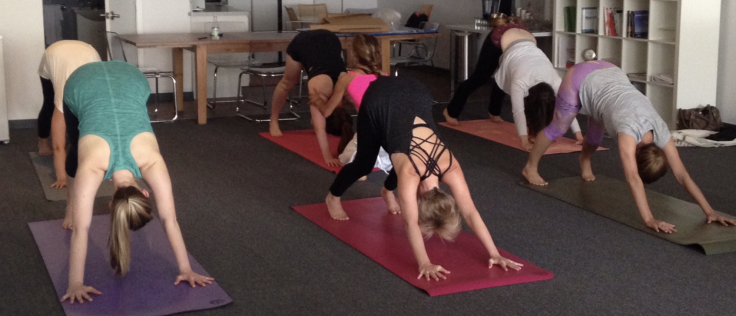Women are notorious for apologizing for just about everything. It’s like the words don’t even register in our minds; they simply roll right off our tongues.
Trying to get around someone’s shopping cart at the grocery store? “Excuse me, I’m sorry.” Showing up 60 seconds late to daycare to pick up your daughter? “Oh my goodness, I’m soooooooo sorry.” Even squeezing into a long line of traffic for most women brings a sheepish hand wave, half “Thank you,” and half, “I’m sorry. I know you think I’m an asshole.”
I don’t know about you, but I find all this apologizing to be exhausting.
We apologize because we somehow assume we’ve disappointed or offended or annoyed or inconvenienced another human being. But maybe we haven’t. Maybe people don’t care about us as much as we think they do. In a good way.
During a recent tennis match, I counted how many times the four of us apologized for making a “mistake” during warm up. The count came to 17. It was a 12-minute warm up, so that means someone said the words, “I’m sorry” more than once every 60 seconds.
That’s insane!
The action that drew the most apologies was accidentally hitting the ball into the net instead of over it, therefore momentarily ending the warm-up rally.
The apologies happened without fail, every single time. And they got more aggressive with each mistake. “I’m sorry” statements that began with an undertone of “Oh, silly me, ” soon escalated to “I’m soooo sorry.” Then came the insinuation of, “I’m such an idiot. Why can’t I hit this yellow ball over the net like a normal person?”

This doesn’t happen with men.
As a social experiment, I stayed after my game to watch a men’s doubles match. Not one “sorry” during the whole thing!
Like most tennis players, the men regularly made mistakes, even hitting the ball into the net during the warm up. But they never apologized, because they considered it, and themselves, to be perfectly normal.
That’s life. Sometimes you bit the ball into the net. For men, this was a natural mistake, and they quickly picked up the ball and moved on with the game. For women, hitting the ball into the net was a clear indication of inferiority and they continued playing under that cloud.
And it’s not just a tennis trend.
I was recently in a yoga class with twelve women and one guy. About halfway through, the instructor encouraged volunteers to “kick up to a handstand and see what happens.” It was a risky idea. About one-third of the class gave it a whirl, while the smarter two-thirds opted to relax in child’s pose and avoid bodily harm.
The one guy in the room, who was at least 6’2″ tall, went all in. He thrust his long arms down, his long legs up, and promptly landed in the perfect handstand.
Until he didn’t.
About seven seconds later, this man turned into The Leaning Tower of Pisa and all 74″ of his body crashed down, head over heels. He flopped on his back like a fish out of water and scared the shit out of every woman in the room.
I happened to be right next to him, and as I saw him fall, I prepared my sympathetic response (“Oh, it’s okay. Don’t worry about it. It’s perfectly fine.”), ready to console him when he said, “Shit, I’m so sorry.”
But he never said he was sorry.
He peeled his long-ass body up off the floor and got right back to his yoga practice. Maybe he was mortified; maybe he wasn’t. Maybe he felt like a buffoon for falling; maybe he felt like a hero for trying.
We’ll never know. But he didn’t suggest he was a knucklehead by saying he was sorry. He simply shook it off and moved on with his life.
The Leaning Tower of Pisa taught me a valuable life lesson that day. There’s a time and place for apologizing.
If you’re a jerk to a friend, say you’re sorry. If you yell at your children or partner unnecessarily, say you’re sorry. If you forget to pick up your sister as promised, say you’re sorry.
Apologizing for something big and meaningful says you feel regretful. Saying you’re sorry for something meaningless or expected says you feel pitiful.
Aim for the former and avoid the latter. Life is full of balls hitting nets. It’s how you respond that matters.






